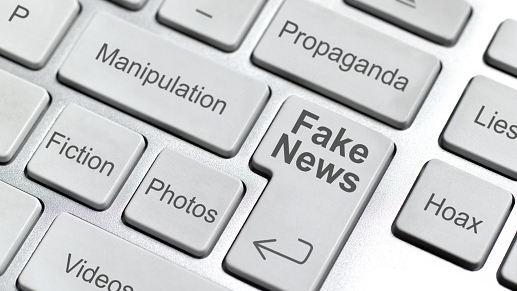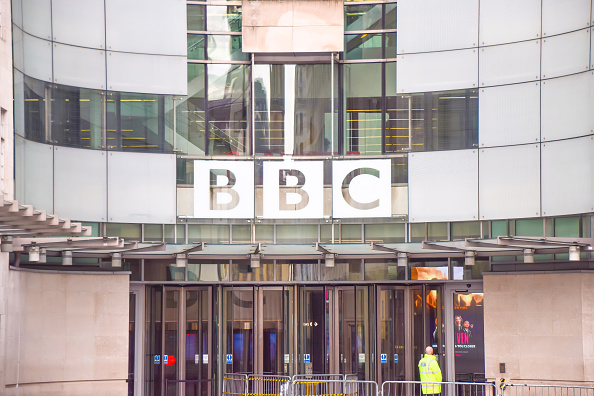
The British politicos would like their people to continue believing long-held negative stereotypes against the Chinese as people who are averse to modernism. /Getty
The British politicos would like their people to continue believing long-held negative stereotypes against the Chinese as people who are averse to modernism. /Getty
Editor's note: Stephen Ndegwa is a Nairobi-based communication expert, lecturer-scholar at the United States International University-Africa, author and international affairs columnist. The article reflects the author's opinions and not necessarily the views of CGTN.
The role of the media anywhere in the world is universal. Any media worth its salt plays a vital role in disseminating information and knowledge, including educating and entertaining people. But it is the first two functions that make the media a potent agent of empowerment and change.
It is within this backdrop that the banning of state-owned China Global Television Network (CGTN) by UK Government's Office of Communications, otherwise known as Ofcom, on February 4, should be reviewed. I posit that CGTN would not have been a "threat" if it was a large entertainment media house disseminating fluff.
Like most of the Western world, the UK media is quite permissive. The UK is renowned for its tabloid newspapers that leave little to the imagination in invading people's privacy, getting into people's intimate lives just for sport. It is home of the infamous paparazzi, a notorious breed of freelance photographers that hounds celebrities going on with their private lives. The paparazzi have been blamed for ruining the personal and business lives of high-profile personalities.
Ironically, the UK, like the U.S. before it has previously undermined Chinese media, has gone against one of media's pillars, free expression, something that it has constantly preached to the rest of the world, and even punished certain countries for going against this tenet. It is a blatant application of double standards.
Ofcom's ban is an escalation of previous hostilities by the UK and its Western allies against Chinese media. The action is reminiscent of U.S. branding of all Chinese global media as affiliations of the Chinese government and last year's imposition of visa restrictions on Chinese journalists based in the U.S. by the administration of former U.S. President Donald Trump. Analysts also see Ofcom's ban as a coded message to Beijing, coming in just a couple of days after U.S. President Joe Biden outlined his foreign policy that left a lot of queries regarding the direction of U.S.-China relations.
Ofcom's action can also be analyzed in the wider perspective of a country becoming increasingly insular to free speech. In an opinion piece by Will Gore published in The Independent on April 25, 2018, the writer laments that "the freedom of the press in the UK has declined dramatically – threatening the basis of our democracy." So, is the UK fearing its citizens cannot handle the truth?

The BBC headquarters in central London, UK. /Getty
The BBC headquarters in central London, UK. /Getty
Furthermore, there have been long-held complaints by Britain's left-wingers that the UK national press has a right-wing bias. In March 2017, a British left-wing newspaper columnist, Owen Peter Jones, was quoted in The Times describing the UK press as "largely run by a very small group of very right-wing media moguls who defend the status quo of which they are part. If you are on the left and want to change society, the media will always come and get you."
This supports claims that the ban on Chinese media is purely politically motivated. At a time when the ugly face of unbridled capitalism has been exposed by the vagaries of the COVID-19 pandemic, the right-wing administration fears that its citizens could be malleable to the more humane socialist ideologies. Again, this is an affront to freedom of choice, a supposedly unassailable virtue of the Western society.
The UK's aim is to blindside their citizens by, first, owning the Chinese narrative. The British politicos would like their people to continue believing long-held negative stereotypes against the Chinese as people who are averse to modernism. Secondly, the UK government wants to maintain its stranglehold on the global narrative where the West is the custodian of all that is good in the world, and the other nations have to follow suit. It is a remnant of the dehumanizing modus operandi of colonialists who viewed their conquests as lesser beings that needed to be civilized.
An article published online on Germany's DW on January 29 states, "Experts warn of China's growing media influence in Africa." It gives hints of the disquiet in the West regarding Chinese media. But what the writer did not tell his readers is that Chinese media has been building the capacity of African media for decades with the aim of empowering them to tell and own their story.
An empowered media is an effective tool for development, which explains the paradigm shifts that Africa is undergoing due to its partnership with China. This is anathema to the West, which for long has deceived Africans into viewing the world through neocolonial prisms. Maybe Ofcom should have explained why the highly state-subsidized British Broadcasting Corporation has been in Africa for decades and keeps expanding into local languages.
The UK should know better. In this day of convergence through the ubiquitous digital media, the UK ban simply makes Chinese content popular. The action will have the opposite effect as an increasing number of the British public log in to CGTN to get a comprehensive view of what exactly their government does not want them to see.
(If you want to contribute and have specific expertise, please contact us at opinions@cgtn.com.)

